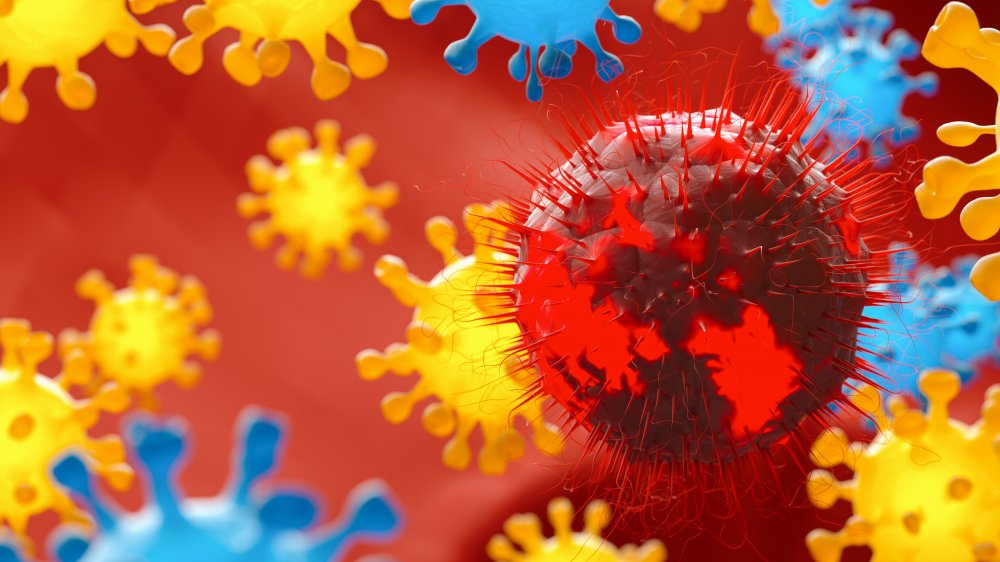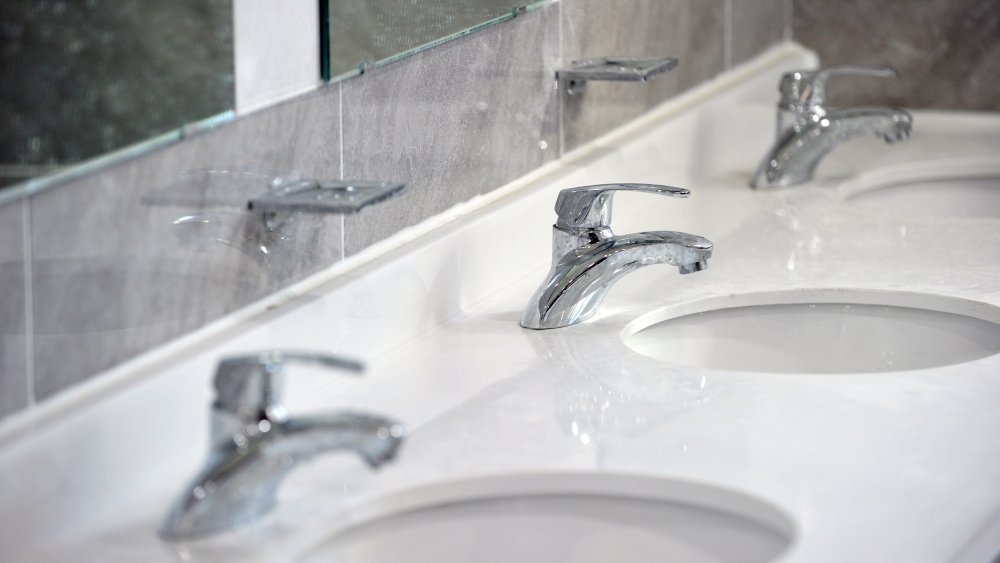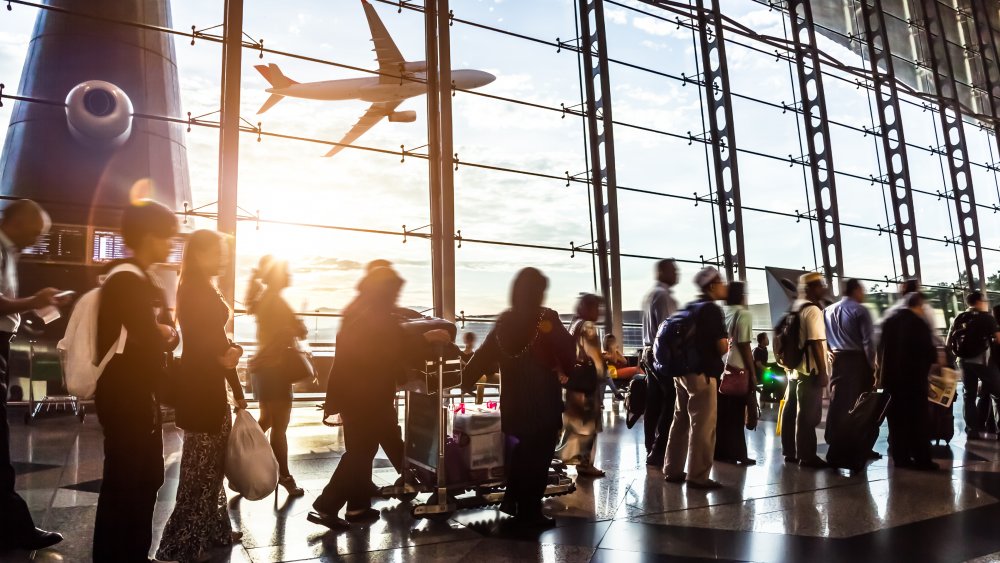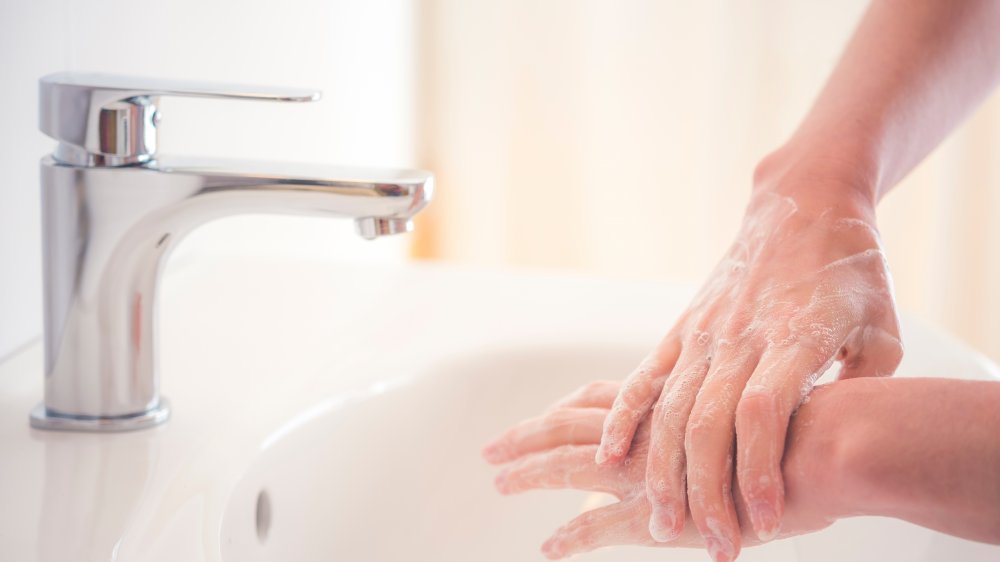This Simple Practice Might Be Your Best Defense Against Coronavirus
Remember how our parents always told us to wash our hands before and after eating? In the absence of any known vaccine or treatment against the COVID-19 coronavirus, The Centers for Disease Control (CDC) and The World Health Organization (WHO) have identified hand washing as one of the most effective line of defense against the disease, which has thus far sickened close to 200,000 people globally and killed close to 8,000, while almost 82,000 have recovered (via Worldometer).
We still know very little about the novel coronavirus, what we do know is that COVID-19 is spread when an infected person coughs or sneezes, and the germs hitch a ride on respiratory droplets which could land on another person, or onto a surface — where it can live for several days. When an uninfected person is standing close to someone with the coronavirus and inhales these droplets, they could get ill. They can also pick up the disease by touching an infected surface, and then touching their faces, particularly the eyes, mouth, and nose, where the virus can infect you (via ABC).
Hand washing isn't second nature to many, but should be
This is where hand washing comes in. "If I have to make a choice, I will keep my hands clean, I will use hand sanitizer, I will wash my hands with soap and water. I would cough into my sleeve, I will ensure that I, you know, when I touch surfaces, that I wash my hands after," Michael Ryan, executive director of WHO's Health Emergencies Programme said (via NBC).
Because we've been doing it all our lives, the notion of washing your hands regularly should be second nature. But according to an Insider poll, a higher number of women say they are washing their hands and cleaning surfaces more often to try and protect themselves from a possible COVID-19 infection than men (via Business Insider). The poll also backs up a study done 20 years ago called "America's Dirty Little Secret," which says that while 95 percent of men and women say they wash their hands after using the bathroom, only 67 percent actually do. The findings also show women are more likely to wash their hands after events like sneezing or handling a diaper than men are (via Science Daily).
Frequent travelers could stop the spread of disease
Christos Nicolaides, who was part of a study on the role of the air transport system in the spread of a disease says that even those that do wash their hands don't do it properly — many don't use soap, and don't spend much time scrubbing like they should. Those that do wash their hands speed through the process, which is problematic at best and critical when you realize that the coronavirus is spreading much more quickly thanks to air travel. "We consider that, at most, 1 in 5 people in an airport have cleaned [their] hands at any given moment in time (i.e., 20 percent of airport population)," Nicolaides and his fellow researchers wrote (via Medial News Today).
He and his fellow researchers argue that if more air travelers were to wash their hands properly, that simple act could slow down the spread of infection by nearly 70 percent. At the moment, research indicates that only 20 percent of those who travel by air regularly keep their hands clean, and even an increase of this by just 10 percent could make a difference. The researchers explained, "Our study concludes that population engagement with proper hand hygiene could be a simple and effective solution for preventing transmission of infections and reducing the risk of massive global pandemics."
How to wash your hands properly to protect against the coronavirus
Even then, all hand washing is not equal. In order for hand washing to work, the CDC says you need to wash your hands properly — that is, to wet, lather your hands with soap, scrub all over for 20 seconds (which you can time by singing "Happy Birthday" twice), rinse, and dry your hands using a clean towel. If soap and water isn't handy (particularly if you get around on public transport), an alcohol-based hand sanitizer that contains at least 60 percent alcohol will do the trick. Doctors say it is important to clean the spaces under your nails, because that spot can be a collection point for bacteria, and to use hand cream to keep your skin from drying out and cracking — which can cause eczema and provide a way for an infection to set in.
Hand washing doesn't just protect us from the coronavirus, but works to protect us from the colds and flu, too, and is an important practice any time of year.



